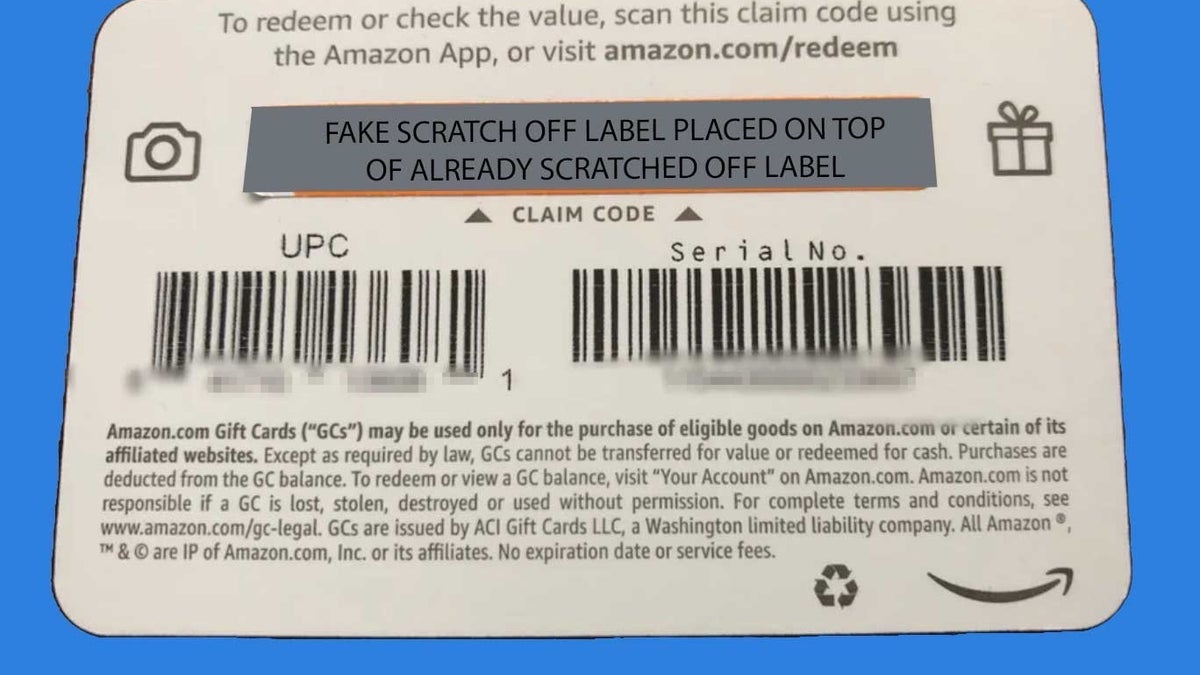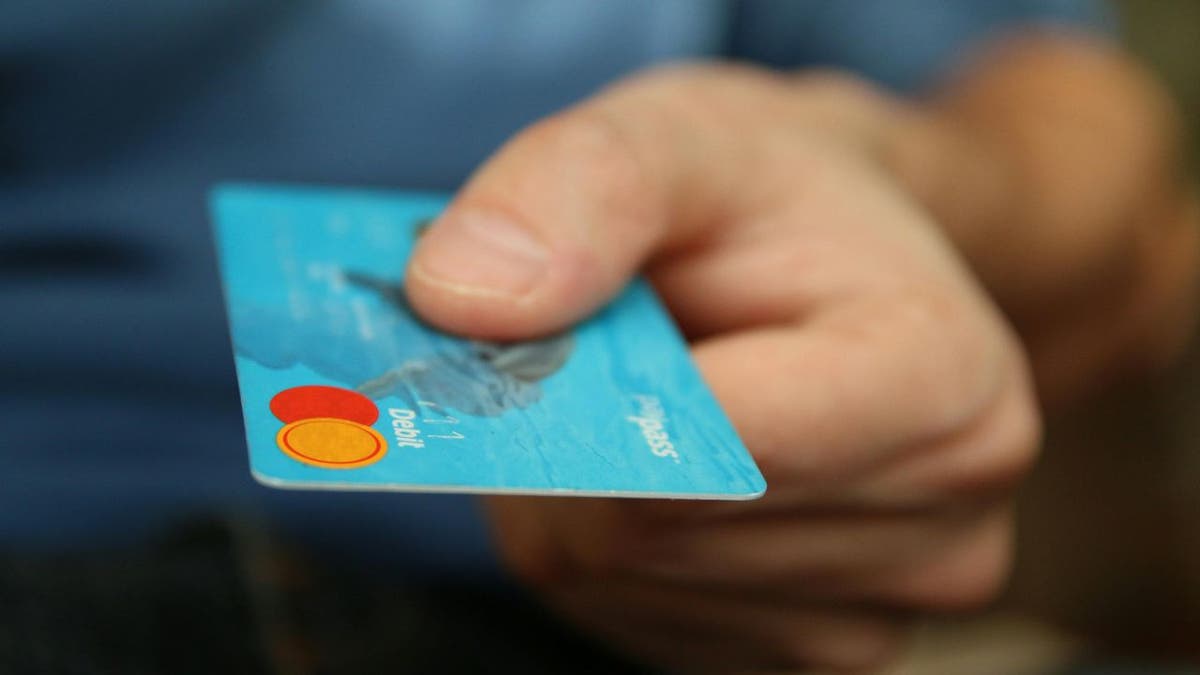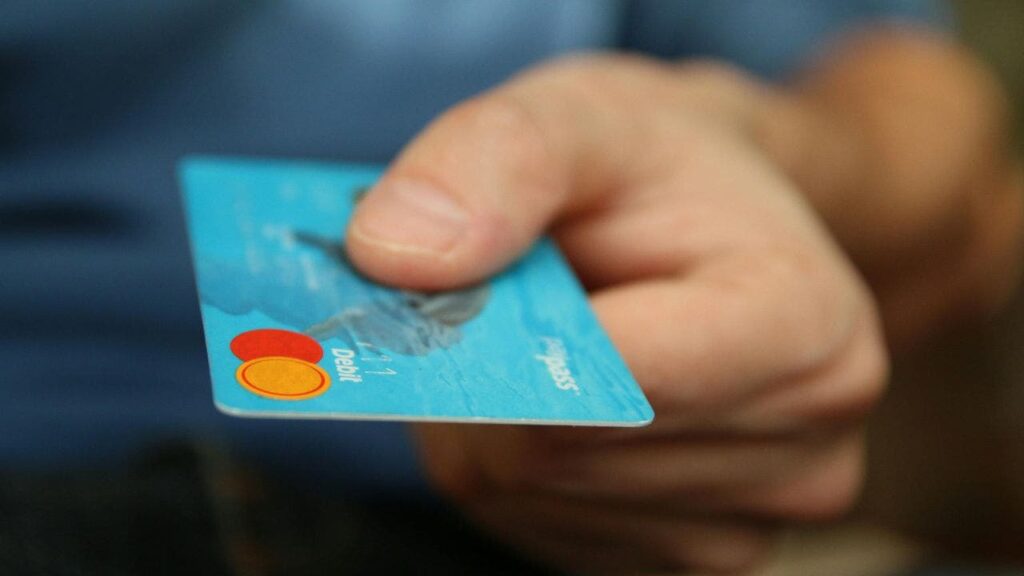With the holiday season just around the corner, many of us are gearing up to spread some cheer with gift cards.
However, it’s important to remember that these convenient gifts are also a favorite target for scammers. We’re going to break down six sneaky gift card tricks that could leave you out of pocket during this time of year.
Don’t worry, though. We’ve got your back with solid tips on how to outsmart these scammers and keep your hard-earned cash safe.
6 DAYS LEFT! I’M GIVING AWAY A $500 GIFT CARD FOR THE HOLIDAYS

Image of a holiday gift card (Kurt “CyberGuy” Knutsson)
1. Display rack gift card trick
One of the latest gift card tricks involves tampering with the gift cards on the display racks at retail stores. Scammers will record the activation code on the card or place a custom barcode sticker over the real barcode, which allows them to secretly load the cash onto their own card immediately after you purchase the gift card. This means that when you or your recipient try to use the gift card, it will be empty or invalid.
How to avoid this scam
Check the packaging of the gift card before buying it. Look for signs of tampering, such as the wrapping being torn or resealed or stickers placed over the barcode or card number. Also, choose a card from the back of the rack, as scammers often place their fraudulent cards at the front of the display.

Fake scratch-off label on top of already scratched-off gift card label (Kurt “CyberGuy” Knutsson)
OUTSMART THE SCAMMERS: HOW THE SNEAKY CEO APPLE GIFT CARD SCAM ALMOST GOT ME
2. Impersonation gift card trick
Another common gift card trick scammers use involves impersonating someone you know or trust, such as a family member, a romantic interest, a company or the government. Scammers will contact you by phone, text, email or social media and create a fake story or emergency that requires you to send them money urgently.
They will ask you to buy a gift card or multiple gift cards and then send them a photo of the card or the numbers on the back of the card. Once they have the gift card information, they will disappear with your money and cut off contact.
How to avoid this scam
Never send money or gift cards to anyone you don’t know personally or haven’t met in person. If someone claims to be someone you know or trust, verify their identity by contacting them directly through a different channel.
Don’t trust caller ID, as scammers can spoof phone numbers. Don’t be pressured by threats or promises, as scammers use emotional manipulation to get you to act quickly and without thinking. And remember, no legitimate company or government agency will ever ask you to pay them with a gift card.

A person holding a gift card (Kurt “CyberGuy” Knutsson)
HARDEST LESSON I LEARNED ABOUT GIFT CARDS LAST HOLIDAY SEASON
3. Resale gift card trick
Another gift card trick involves buying or selling gift cards on online platforms, such as websites, apps or social media groups. Scammers will offer to sell you gift cards at a discounted price or buy your unwanted gift cards for cash.
However, they will either send you a fake or empty gift card or take your gift card information and money without sending you anything in return. They may also use stolen credit cards or hacked accounts to buy or sell gift cards, which can put you at risk of fraud or identity theft.
How to avoid this scam
Only buy or sell gift cards from reputable sources, such as official retailers, authorized resellers or trusted friends and family. Avoid buying or selling gift cards from strangers online, especially if they offer a deal that sounds too good to be true.
Don’t share your gift card information or personal details with anyone you don’t know or trust. And use a secure payment method that offers protection, such as a credit card or PayPal, instead of a gift card, wire transfer or cash.

A person giving a gift card as a present (Kurt “CyberGuy” Knutsson)
HOW TO RECYCLE YOUR OLD ELECTRONICS INTO AMAZON GIFT CARDS
4. Phishing gift card trick
A very popular gift card trick this holiday season involves phishing, which is a type of online fraud that tries to trick you into revealing your personal or financial information. Scammers will send you an email, text or pop-up message that looks like it comes from a legitimate company, such as a retailer, bank or tech support service.
They will claim that there is a problem with your account, your order, your device or your security and that you need to verify your identity, update your information or fix an issue. They will then ask you to click on a link, open an attachment or call a number and then request that you pay them with a gift card or provide them with your gift card information.
How to avoid this scam
Never click on links, open attachments or call numbers from unsolicited messages, as they may lead to fake or malicious websites or software. Don’t provide any personal or financial information, such as your passwords, PINs, account numbers or gift card numbers, to anyone who contacts you unexpectedly.
Don’t trust messages that create a sense of urgency, pressure or fear, as they are designed to make you act without thinking. If you have any doubts about the legitimacy of a message, contact the company directly using a verified website, phone number or email address.
Using antivirus protection will help to protect you against scammers and hackers who try to steal your money and personal information using gift card tricks, especially through phishing. The best way to protect yourself from clicking on any malicious links, fake websites, phishing emails and text messages is to have strong antivirus protection installed and actively running on all your devices. It’s the best to help stop and alert you of any malware in your system and ultimately protect you from being hacked.

A person purchasing a gift card online (Kurt “CyberGuy” Knutsson)
5. Loyalty program gift card trick
This gift card trick involves loyalty programs, which are rewards programs that offer you points, discounts or freebies for being a loyal customer. Scammers will pretend to be representatives of a loyalty program that you are a member of or that you are eligible to join.
They will tell you that you have won a prize, sweepstakes or a promotion and that you need to pay a fee, a tax or a shipping cost to claim it. They will then ask you to pay them with a gift card or provide them with your gift card information.
WHAT IS ARTIFICIAL INTELLIGENCE (AI)?
How to avoid this scam
Be wary of any unsolicited offers or notifications that claim that you have won something, especially if you don’t remember entering or signing up for anything. Don’t pay any money or fees to receive a prize, as legitimate loyalty programs will never ask you to do that. Don’t provide any personal or financial information, such as your passwords, account numbers or gift card numbers, to anyone who contacts you unexpectedly.
Don’t trust messages that create a sense of excitement, curiosity or greed, as they are designed to make you act impulsively. If you have any doubts about the legitimacy of a message, contact the loyalty program directly using a verified website, phone number or email address.

A person purchasing a gift card online (Kurt “CyberGuy” Knutsson)
6. Fake balance checker scam
In this scam, fraudsters set up fake websites or phone services that claim to check the balance of your gift cards. Victims are lured into providing their gift card numbers and PINs under the guise of verifying their balance. Once the information is entered, scammers can drain the funds from the card almost immediately.
How to avoid this scam
To avoid this scam, always use official websites or apps from reputable retailers to check your gift card balance. Be wary of unsolicited calls or messages asking for your gift card information, especially if they claim to be from a legitimate company. It is important never to enter your gift card details on unfamiliar websites.
HOW TO FIGHT BACK AGAINST DEBIT CARD HACKERS WHO ARE AFTER YOUR MONEY
How to safely give and receive gift cards
- Buy gift cards online instead of physical cards directly from the store, not from third parties. You can also use these favorite sites and apps that will reward you with a percentage back on all gift card purchases.
- Avoid gift card racks at retail stores like the grocery store. If you still want to buy one at the store, dig back into the pile without taking the first ones off the rack. Inspect them like a detective before you buy them to make sure they are unaltered.
- Register the gift card directly with the retailer if offered, which also helps track the card balance.
- Never engage in any gift card transactions from callers making unusual claims. It is likely a scam.
- Avoid buying gift cards from online auction sites like eBay.
- Never provide personal financial information beyond a method of payment to anyone offering gift cards in-store or online.
- Use strong antivirus protection. Strong antivirus software is a must-have to protect against scammers and hackers who try to steal your money and personal information using gift card tricks, especially through phishing. The best way to safeguard yourself from malicious links that install malware, potentially accessing your private information, is to have antivirus software installed on all your devices. This protection can also alert you to phishing emails and ransomware scams, keeping your personal information and digital assets safe. Get my picks for the best 2024 antivirus protection winners for your Windows, Mac, Android and iOS devices.
I’ve been scammed! What to do next?
Below are some next steps if you find you or your loved one is a victim of identity theft as a result of a gift card trick by scammers or hackers.
1. If you can regain control of your accounts, change your passwords and inform the account provider.
2. Look through bank statements and checking account transactions to see where outlier activity started.
GET FOX BUSINESS ON THE GO BY CLICKING HERE
3. Use an identity theft protection service: Identity theft companies can monitor personal information like your Social Security number, phone number and email address and alert you if it is being sold on the dark web or being used to open an account. They can also assist you in freezing your bank and credit card accounts to prevent further unauthorized use by criminals. Some of the best parts of using an identity theft protection service include identity theft insurance to cover losses and legal fees and a white-glove fraud resolution team where a U.S.-based case manager helps you recover any losses. See my tips and best picks on how to protect yourself from identity theft.
4. Report any breaches to official government agencies like the Federal Trade Commission and the gift card company.
5. Get the professional advice of a lawyer before speaking to law enforcement, especially when you are dealing with criminal identity theft and if being a victim of criminal identity theft leaves you unable to secure employment or housing.
6. Alert all three major credit bureaus and possibly place a fraud alert on your credit report.
7. Run your own background check or request a copy of one if that is how you discovered your information has been used by a criminal.
If you are a victim of identity theft because of a gift card scam, the most important thing to do is to take immediate action to mitigate the damage and prevent further harm.
Kurt’s key takeaways
As we head into the holiday season, it’s important to keep an eye out for these six gift card scams we’ve talked about. If something feels off or sounds too good to be true, trust your gut and don’t be afraid to ask questions or walk away. Gift cards are meant to bring joy, not stress, so keep these tips in mind as you shop and share this season.
CLICK HERE TO GET THE FOX NEWS APP
Have you ever fallen victim to a gift card scam? If so, how did it happen, and what did you do? Let us know by writing us at Cyberguy.com/Contact.
For more of my tech tips and security alerts, subscribe to my free CyberGuy Report Newsletter by heading to Cyberguy.com/Newsletter.
Ask Kurt a question or let us know what stories you’d like us to cover.
Follow Kurt on his social channels:
Answers to the most asked CyberGuy questions:
New from Kurt:
Copyright 2024 CyberGuy.com. All rights reserved.
Kurt “CyberGuy” Knutsson is an award-winning tech journalist who has a deep love of technology, gear and gadgets that make life better with his contributions for Fox News & FOX Business beginning mornings on “FOX & Friends.” Got a tech question? Get Kurt’s free CyberGuy Newsletter, share your voice, a story idea or comment at CyberGuy.com.













